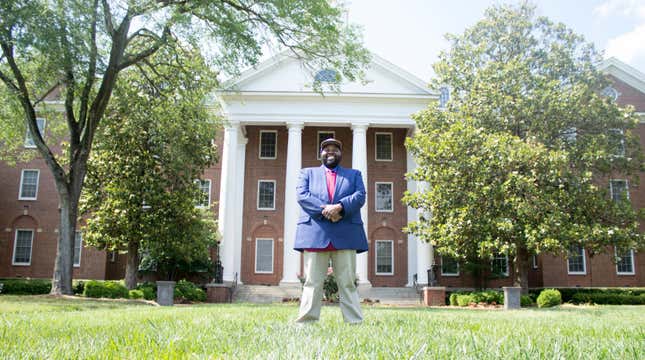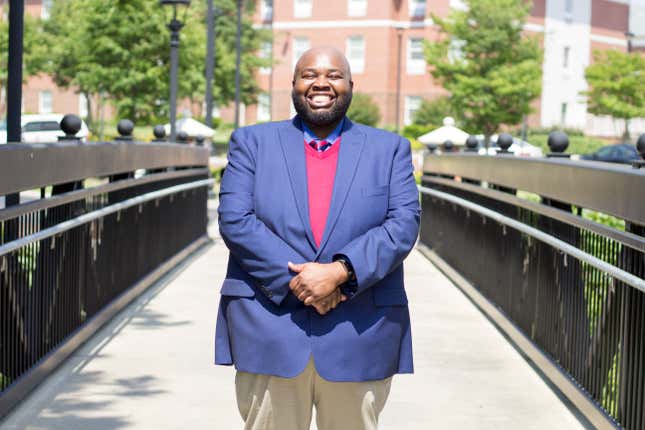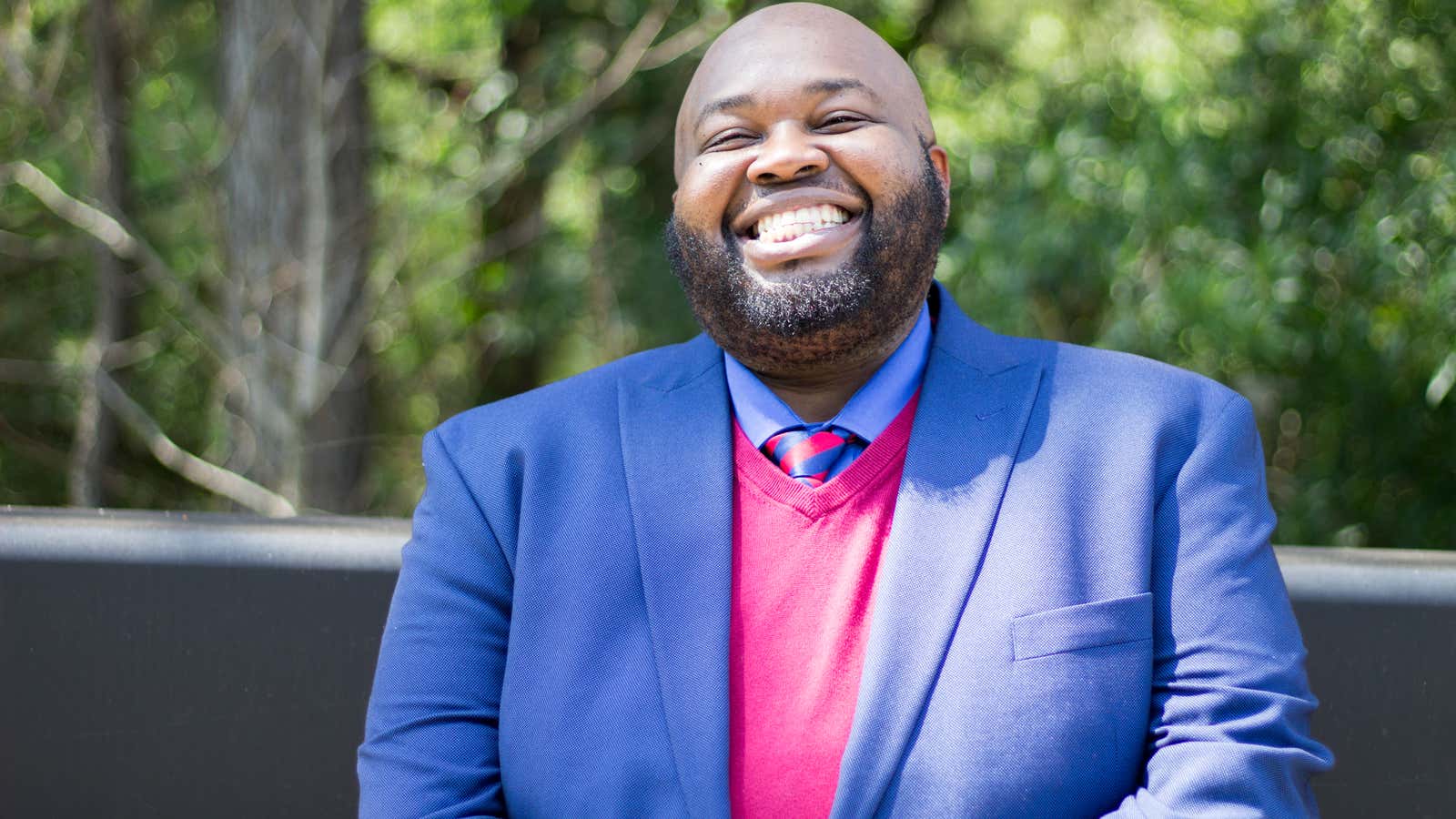Rodney Robinson’s journey to becoming the 2019 National Teacher of the Year was like a road littered with obstacles. One of the major challenges was needing to work a full-time job while earning his undergraduate degree at Virginia State University in Petersburg, Va. While carrying a full academic load at the HBCU, Robinson held down jobs, including a stint at Kings Dominion amusement park.
It was a challenge made easier by classmates and professors who knew the future top educator needed to work, Robinson said. Professors allowed him some wiggle room for assignment due dates and made sure Robinson had everything he needed if he couldn’t make it to class. A few of his professors would even buy merchandise they needed at Circuit City so that he could earn the commission.
“It was that community, that family environment at Virginia State,” he pointed to as part of the reason for his success, adding that the university’s tradition of giving the next generation a hand up was also key.
Robinson graduated in 2000 with a bachelor’s degree in history and built an impressive teaching career that spans 19 years—earning the National Teacher of the Year honor in April. During his nearly two decades of teaching, Robinson has been paying it forward by applying VSU’s tradition of relationship building between teacher and students into his classrooms.

In 2015, Robinson began teaching at Virgie Binford Education Center, a juvenile detention facility in Richmond, Va. He has been on a mission to help turn around the lives of his students while developing alternative programs to prevent students from entering the school-to-prison pipeline.
“Virginia State taught me the importance of helping the next generation,” he said. “It’s all about getting to know my students, building solid relationships, getting to know their family, knowing their community. Once you do that, the kids say, ‘Hey, he actually cares about me.’”
Robinson’s career could have been derailed when he was in high school. When Robinson got himself in trouble at a predominantly white school, his vice principal—a Virginia State graduate—took time to talk with him during his five days of in-school suspension.
“He talked to me about how going to college changed him from a confused young man to a solid grown up,” recalled Robinson, a first-generation college student in his family. “He helped me fill out the application and financial aid forms. He said Virginia State is all about helping the next generation.”
VSU was founded in 1882 with 126 students and seven black faculty members who utilized one building on campus. By its centennial, the university had nearly 5,000 students and about 250 faculty members on a campus of more than 50 buildings.
Robinson recalled the first time he set foot on campus: “It was a little bit intimidating because I was from the country. Even though it [Petersburg, Va.] wasn’t a big city, it was a lot more than I was used to,” said Robison, who hails from King William County, Va. “It was intimidating at first, but once I felt the love and enthusiasm and support, it just felt like home in a couple of weeks.”
He explained that VSU’s tradition of juniors and seniors taking freshmen under their wings was an immense help, as they helped him to navigate his way through the college experience.
“There was this moment when I knew this was the place for me because all my fears went away when the upperclassmen stepped in. They said, ‘Hey, we are here, we got your back.’ It made me feel welcome,” he said.
VSU also has a tradition of extending a hand beyond the campus and into the local Petersburg community. Robinson said, “We knew we were part of that community.”
The university shares its athletic facilities with children from the local public school system. Robinson recalled going into high schools and middle schools to serve as a role model for the students, many of whom became inspired by seeing black college students.
“They came from the same background as a lot of Virginia State students,” he stated, explaining the ease with which he and his classmates related to the middle and high school students.

That tradition continues. In April, the university’s Student-Athlete Advisory Committee collaborated with Samaritan’s Feet International to give 300 Petersburg Elementary School students a new pair of shoes and socks.
There’s another Virginia State tradition that Robinson recalled fondly: great performances by the Virginia University Gospel Chorale, which has won many competitions.
“They are amazing,” Robinson said recalling performances as a student. “The music department is top notch. Going to their performances was clearly one of the highlights of my college days.”


